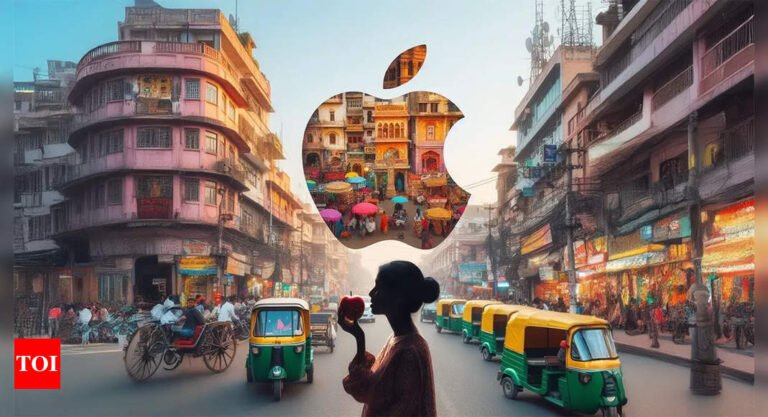Murata Manufacturing Co., a producer of iPhone components, is considering relocating some production facilities to India, signalling a shift in global supply chains towards the world’s largest population centre.
Apple has been expanding production beyond China, recently initiating trial production of AirPods in India. Additionally, numerous Chinese mid-range smartphone manufacturers are anticipated to establish facilities in India, attracted by its substantial workforce and growing consumer expenditure.
According to a Bloomberg report, Murata, the Kyoto-based manufacturer of multilayer ceramic capacitors anticipates increased demand in India and is analysing potential investment scenarios in the region, according to company President Norio Nakajima.
Nakajima explained that whilst their newest capacitors are primarily manufactured in Japan, clients are requesting increased overseas production, partly for business continuity considerations.
Murata’s components are essential in virtually all electronic devices, including Apple Inc. and Samsung Electronics Co. mobiles, Nvidia Corp. servers and Sony Group Corp. gaming systems. The firm has also contributed to NASA’s Mars helicopter project. Currently, Japan produces nearly 60% of their MLCCs, though this figure is expected to decrease to approximately 50% in coming years, according to 63-year-old Nakajima. Murata leads globally in supplying capacitors, which manage power distribution to electronic components.
Responding to customer movements and support from Narendra Modi’s administration, Murata has secured a facility in OneHub Chennai Industrial Park in Tamil Nadu, planning to commence capacitor packaging and distribution in the fiscal year beginning April 2026. The company has committed to a ¥1 billion ($6.6 million) five-year lease to evaluate long-term market potential before considering a comprehensive manufacturing facility, according to Nakajima.
Infrastructure limitations in India currently prevent Murata from establishing a complete production facility, particularly due to power supply concerns, according to Nakajima. However, the company aims to develop some capacity there to align with their customers’ production shifts and respond to growing electronics demand, as well as potential future manufacturing incentives, the Bloomberg report said.
Nakajima indicated that whilst India expansion plans are underway, Murata does not intend to set up manufacturing units in the US. This decision stems from their capacitors being primarily incorporated into products assembled in Asia before being shipped to American markets.
Although Trump’s reciprocal tariffs policy has sparked internal discussions at Murata, their primary worry centres on the broader economic implications. Nakajima expressed concern that widespread consumer goods price increases could adversely affect capacitor orders.
Murata anticipates steady annual smartphone shipment growth of up to 3%, driven by emerging markets’ preference for low and mid-range devices. Nakajima highlighted that faster growth is expected from AI server demand. This outlook has contributed to a 15% rise in Murata’s share value since their February quarterly results announcement.
The company, recognised as a key indicator of gadget demand, forecasts global smartphone production to reach 1.18 billion units in fiscal 2024, representing a 3% year-on-year increase.
Trending
- India begins homework for proposed trade deal with US
- US tariff: ‘No major impact on pharma’
- PhonePe prepares for public listing
- Elon Musk-led Tesla’s India entry: Modi government’s new EV policy may help cos like Tesla test waters
- Stock market today: BSE Sensex tanks over 500 points; Nifty50 below 22,800
- Suzuki rejigs India EV plans
- Samsung seeks Tamil Nadu government help for workers’ safety
- Top stocks to buy today: Stock recommendations for February 21, 2025
- RBI rejects all bids at auction to ease liquidity
- 12,000 crore duty demand from Skoda VW not arbitrary: Customs department tells court



